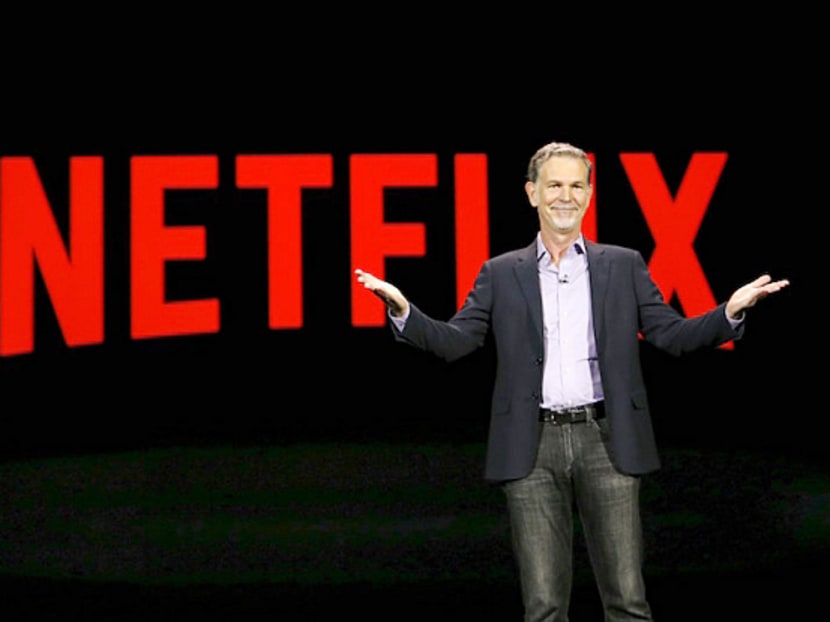Netflix ‘recognises’ frustrations of S’pore viewers
SINGAPORE – Netflix is aware that many of its subscribers in Singapore have been growing increasingly disenchanted with the limited slate of offerings available here, the firm’s co-founder and chief executive officer Reed Hastings said on Tuesday (April 26).

Mr Reed Hastings, co-founder and CEO of Netflix. Photo: Reuters
SINGAPORE – Netflix is aware that many of its subscribers in Singapore have been growing increasingly disenchanted with the limited slate of offerings available here, the firm’s co-founder and chief executive officer Reed Hastings said on Tuesday (April 26).
After an initial flurry of interest when the service was launched here earlier this year, complaints about the range of shows available, compared to Netflix’s offerings elsewhere in the world, have grown.
“We know it’s frustrating, but we’re growing into having global content so that everybody has the same (content),” said Mr Hastings, who stopped by Singapore to meet employees in the local Netflix office on his way to the Asia Pacific Pay-TV Operators Summit in Bali.
But, he said, it will take some time before this becomes reality.
Offering some reasons for why this is so, Mr Hastings said one reason is content licensing rights are expensive.
“In Canada, we have licensed the Disney movies, including Star Wars. But we’ve only paid (the licence) for Canada. Of course, the content owners don’t want us exploiting that around the world unless we pay for it,” he explained.
“We’re trying to pay for global licensing ... for all the content around the world so that it’s fair to the content owner and it gives the people what they want, which is the global selection,” he added.
Another reason is that licensing rights for some shows were initially negotiated for exclusive screening in other countries, and Netflix will have to wait for these to run out before it can negotiate new deals that allow for them to be screened in more areas.
Mr Hastings admits that the company is learning on the fly, and says it still has quite a way to go.
“In most countries, such as Vietnam, we’re only (available) in English (and accept only) international credit cards. We’ve got a little over 20 languages; YouTube has 50. So we’ve got ways to go, when it comes to languages and payment methods. But the reason we went global is that we realised we’re going to increase our rate of learning if we do so.”
Another example he cited was Brazil, where Netflix launched four-and-a-half years ago.
It did not do well at first, but “only by being in the market were we able to figure out how to evolve the marketing … which content worked better … and now, we’ve got a very strong business growing fast in Brazil,” he said. “That’s where we realised it’s better to launch even if we’re not perfect, and then learn."







